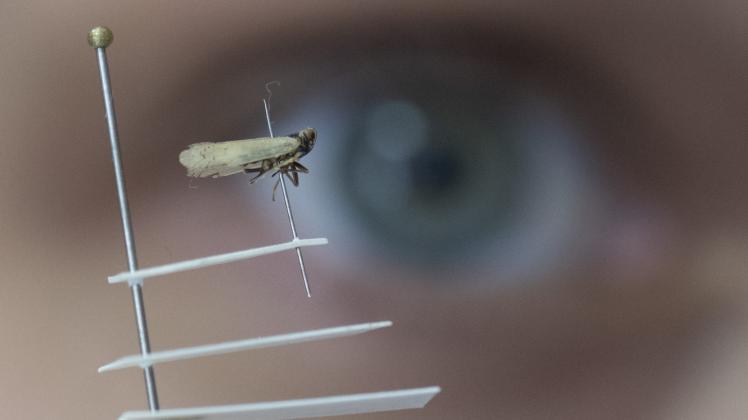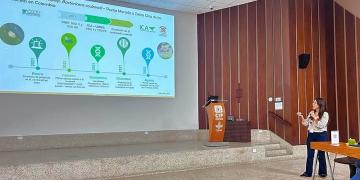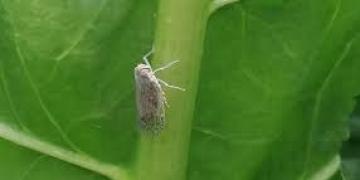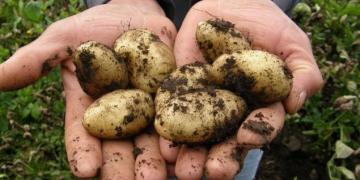Europe: Tiny insect threatens beet and potato crops
The outbreak has intensified calls for reform of EU regulations to allow the use of new genomic techniques (NTG).

A tiny insect, barely a millimeter in size, is endangering essential crops, including sugar beets and potatoes, not only in Germany but also in other European Union (EU) member states.
The leporine leafhopper (Pentastiridius leporinus/low-richness syndrome leafhopper) is the primary vector of a major disease of sugar beet, which drastically reduces the yield and sugar content of infected plants.
Although it is native to Europe, until now it was traditionally limited to sugarcane fields and was not considered a threat to crops.
However, it has adapted to feed on crops such as sugar beets, potatoes, and certain vegetables, spreading disease as it eats.
According to the German Farmers’ Association (DBV), the threat to crops has reached unprecedented levels. In 2024 alone, more than 100,000 hectares were infected, a DBV expert explained to Euractiv.A plague that spreads to almost all crops in Europe
First detected in German sugar beet crops in 2008, the leporine leafhopper has since spread to potatoes and is now a growing threat to peppers, tomatoes, chard, celery, asparagus, onions, and beets.The biggest headache for farmers is the insect’s ability to overwinter in cereal crops, including wheat.
"This means that it is relatively difficult to effectively contain the spread of the disease through crop rotation measures," warns the DBV.
University of Göttingen entomologist Michael Rostás confirms the seriousness of the situation. "Growing winter wheat after sugar beet also seems to benefit the insect (…) thus, the nymphs (in a process of metamorphosis) can find food in the roots all year round," he says.Possible spread to all of Europe
Although Germany is currently the most affected country, experts warn of the high probability that the "leporine leafhopper" will spread throughout Europe."The insect first appeared as a pest in eastern France in the 1990s," Rostás explains.
"It was there that the disease was first described and both the pathogen and the vector were identified," he adds.
Things are not looking good for crops in other EU countries.
"Further spread of the insect and the diseases it transmits to other European countries is likely," warns Rostás. "All areas where sugar beet and potatoes are grown, possibly even some vegetables, could be affected," he warns.On the other hand, the expert warns that the reasons for the rapid growth of the insect’s population remain largely a mystery to science.
Their concentration in southern Germany and Switzerland may indicate underlying climatic reasons.
"It’s possible that it prefers warmer conditions and thus benefits from climate change," he notes.
New crop varieties?
The outbreak has intensified calls for reform of EU regulations to allow the use of new genomic techniques (NTG)."The development of resistant varieties is only possible in the medium and long term," says a source from the DBV.
"Para hacerlo de manera efectiva, sería útil acceder a técnicas modernas de mejoramiento genético, incluido CRISPR/Cas", añade la fuente.
Rostás apoya la idea.
"Creo que desarrollar nuevas variedades de plantas a través de la edición genómica es muy valioso", afirma.
Sin embargo, los organismos modificados genéticamente (OMG) siguen siendo motivo de intensa controversia, tanto en Alemania como en toda la UE. La coalición alemana formada por los demócrata-cristianos (CDU) del canciller Friedrich Merz y los socialdemócratas (SPD/S&D) está dividida sobre si etiquetar o no los productos modificados genéticamente.Mientras tanto, en Bruselas continúan las negociaciones interinstitucionales trilaterales entre la Comisión Europea, el Consejo y el Parlamento Europeo sobre la regulación de las NTG.
En un intento por mitigar la situación, las autoridades alemanas han emitido una autorización de emergencia de 120 días para el uso de pesticidas en cultivos de papa, luego de una aprobación similar para la remolacha azucarera a principios de abril.
Hace diez días, las medidas se ampliaron para incluir zanahorias, remolachas y repollos.
Sin embargo, el DBV ha advertido que las "medidas a corto plazo" probablemente no resolverán "el desafío estructural más profundo que plantea la rápida adaptación y propagación de la plaga".
Fuente:




